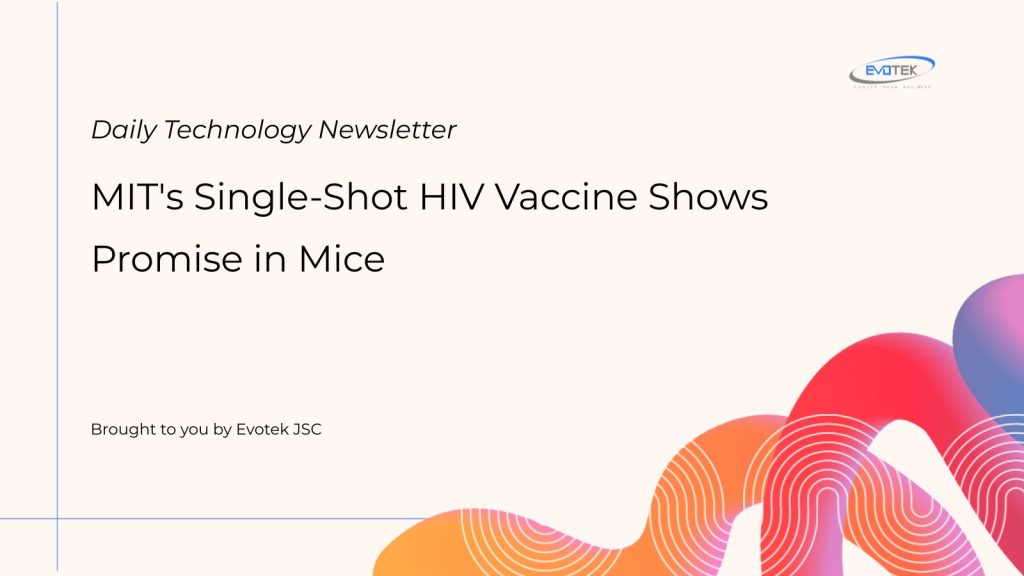Cambridge, MA (June 20, 2025) – Researchers at MIT and Scripps Research have announced a potential breakthrough in HIV vaccine development. Their innovative approach involves a single-dose vaccine that triggers a robust immune response by using a combination of adjuvants.
Dual Adjuvants: A Powerful Combination
The research team discovered that combining two adjuvants – alum and SMNP – with an HIV vaccine candidate led to a significantly stronger immune response in mice compared to using either adjuvant alone. Adjuvants are substances that enhance the immune system’s response to a vaccine.
This novel vaccine strategy allows the vaccine to remain in the lymph nodes for an extended period—nearly a month—which stimulates the production of a diverse range of antibodies targeting HIV. The prolonged exposure allows B cells to refine their response, potentially leading to broadly neutralizing antibodies.
Why a Single Shot Matters
According to J. Christopher Love, a professor of chemical engineering at MIT, this approach could revolutionize vaccination strategies. “This method is compatible with many protein-based vaccines, offering the possibility of engineering new formulations for various diseases, including influenza, SARS-CoV-2, and future pandemic outbreaks,” Love stated.
This single-shot vaccine strategy mimics natural infection processes, where antigens linger in lymph nodes, allowing the body ample time to develop a strong immune response. This extended exposure increases the likelihood of generating broadly neutralizing antibodies, a key goal in HIV vaccine design.
The Science Behind the Breakthrough
The team’s findings, published in Science Translational Medicine, detail how the dual-adjuvant vaccine effectively penetrates the protective layer of cells surrounding the lymph nodes, ensuring the HIV antigen remains intact and accessible to B cells. This prolonged exposure allows the B cells to evolve and produce more effective antibodies.
Kristen Rodrigues, one of the lead authors, highlighted the significance of the diversified B cell response: “The more chances we give the immune system to identify an effective solution, the better.”
Future Implications
The researchers are optimistic that this dual-adjuvant approach could be applied to develop more effective single-dose vaccines for other infectious diseases. By combining well-understood adjuvants, they aim to achieve long-term antigen exposure, potentially simplifying vaccination schedules and improving outcomes.
Source: Massachusetts Institute of Technology
Journal Reference: Kristen A. Rodrigues, Yiming J. Zhang, et al. Science Translational Medicine, 2025; DOI: 10.1126/scitranslmed.adw7499
Related Topics: Health, Medicine, Vaccine Research, HIV

 日本語
日本語 한국어
한국어 Tiếng Việt
Tiếng Việt 简体中文
简体中文